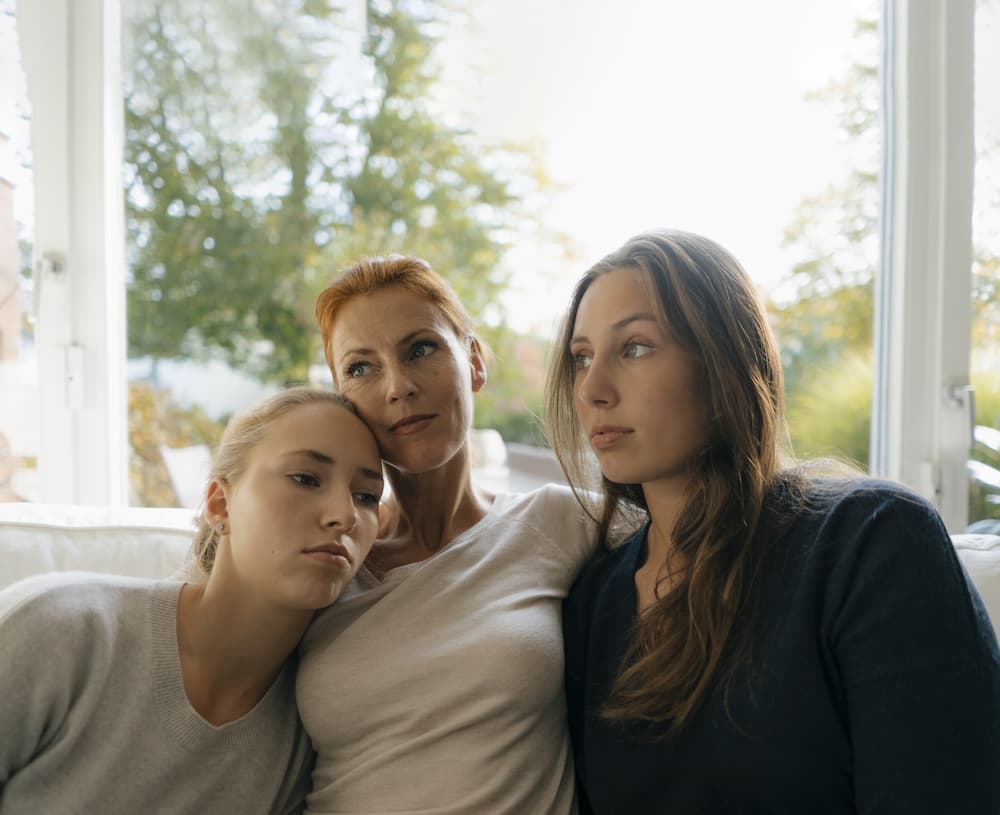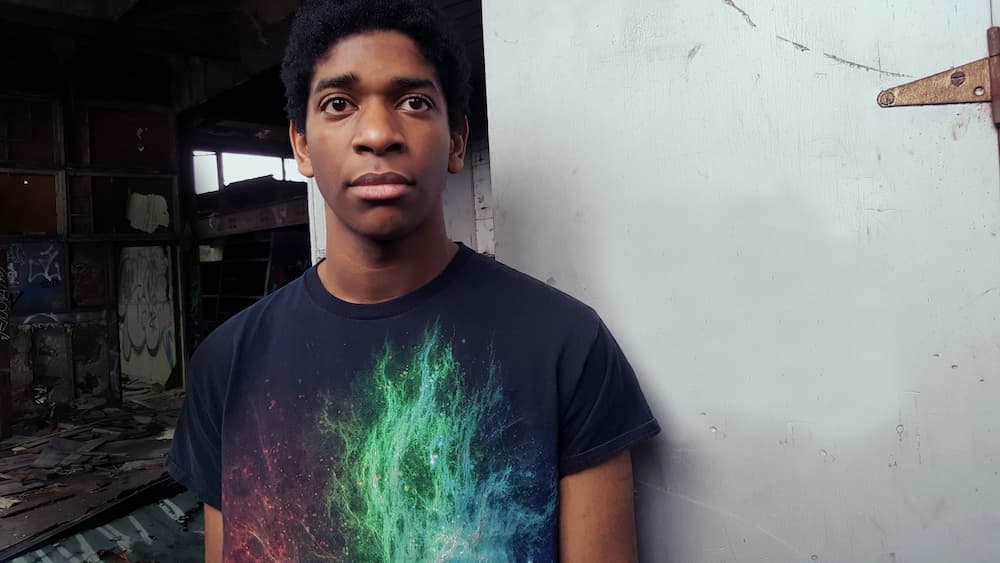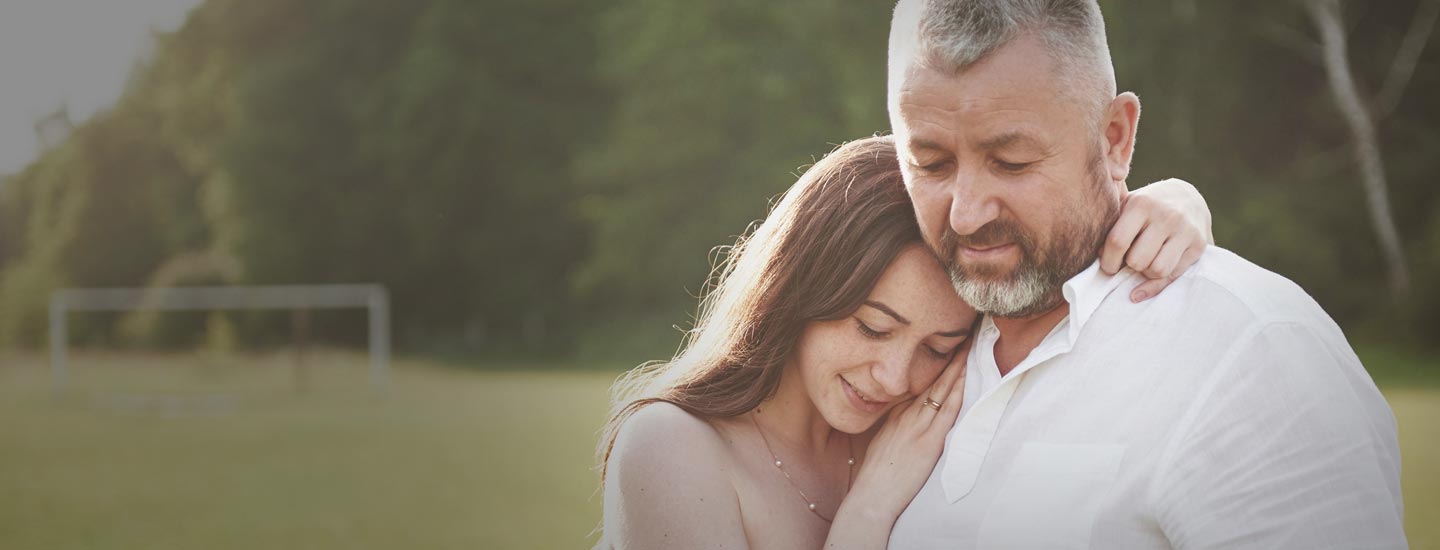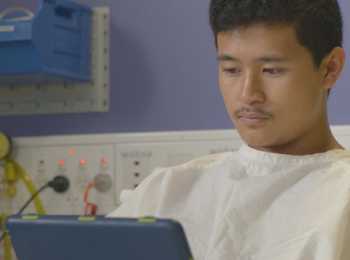Contents
Part 1
Who says they will not get better?
What’s this ‘palliative’ thing?
Now what?
Hearing the news that your mum or dad’s cancer is not going away and that they may have a limited time to live is going to be hard for you and everyone around you. That’s the understatement of the year. You may find it impossible to believe. You might feel like you’re stuck in a nightmare and will wake up any minute to find out it’s not true.
But the sad truth is, cancer can’t always be cured. No matter what treatments the doctors have tried or how brave and positive your parent has been, people do die from this disease.
No matter how much preparation you do, you can never be totally ready for something like this. It sucks. You may feel like you have the worst luck in the world. Thinking about life without your parent can be so painful that you may not be able to breathe.
It’s not going to be easy. But that doesn’t mean that you can’t get through this. Many other young people have been there before and have made it out the other side. We have tracked some of them down and in this book they share their stories with you. Although nothing we say can make what’s happening go away, hopefully it will help you to realise that you’re not alone.
This book is not an instruction manual on how to feel when your parent is dying. There is no right way to feel and no plan to follow to prepare for something like this. Everyone does it in their own way.
You’re not expected to remain calm and composed. Your feelings will change as time passes and different sections of this book will be important to you at different times. So although the pages are numbered, you don’t have to read them in order. This book is just something you can dip into when you need to.
You may find reading about these issues for the first time difficult and distressing. Most of us have never talked about ‘dying’ and ‘death’ much before.
"I wish I had known that even though Dad wasn’t going to be here, I would become the strong person I am today and be able to create a happy life for myself. A life that I can happily say he would be proud of!"
Melissa

We know this is hard for your parent, but we know that this is really hard for you too. Cancer affects the whole family.
Often “the kids” get forgotten in situations like this. But you have a right to get the information you need and to be included in what’s going on. Leaving this book out on the table might be a good way to get the message across to other people in your family that, “Hey, I’m here too!”
This may be a time of massive uncertainty. You may not be sure what’s going on, or how long your parent might be around. The most important thing to remember is that you can live while dying. Their illness might shorten their life, but they don’t have to stop living until the last breath. This is a book about making the most of that life. They will always be a part of your life after they have died.
Taking it in
There is no easy way to hear that your parent is not going to get better. When you found out, you may have thought, “No, you’re wrong. I don’t believe you!”
Even if your parent has been sick for ages, has no hair and the hospital has become your second home, you may not have expected this. Your parent may have already shown a great amount of strength. Even though they have been really sick before in stages before, they always bounced back. You may have been expecting them to bounce back this time - and find it really hard to accept that there are no treatments left to try.
"I was very angry and overwhelmed. I was just mad all the time at everyone and everything. I felt hatred and I was guilty because I was mad at my own Mum that she was going to leave me…She was like my heart, the closest person I’ve ever had to me - and to me it was like I was dying too."
Laura
Who says they will not get better?
Doctors make their judgement about the likely outcome of a person’s disease (called a “prognosis”) based on their knowledge and experience with patients with a similar condition. When your parent’s cancer does not respond to treatment aimed at reducing or controlling it, a doctor may say it is no longer “curable”. This means your parent will not get better and it is likely they will die from the cancer at some point.
It is really difficult for a doctor to accurately predict exactly how long they will live. They may give you an estimate, but keep in mind that your parent may live longer, or unfortunately, for less time than the doctor predicts.
A doctor will not give up on your parent. They will always do everything they can to do the right thing for your parent and family. But sometimes, you do have to ask them to tell it to you straight.
It may also have been your parent’s decision to stop treatment. Often a patient knows before anyone else that they are not getting better and just can’t face going through it all again. It doesn’t mean that they are giving up on living, just that they are admitting the treatments are not working.

What’s this ‘palliative’ thing?
Many people have never heard of palliative care until someone they know needs it.
“Palliative care” is the special kind of care and support provided to people who have an illness that can’t be cured.
It is really hard to shift your focus from talking about your parent getting better to talking about them needing palliative care. It can also be really hard to be referred to palliative care and have to start dealing with new people and a new system.
Your family may have developed a really strong and trusting connection with your parent’s hospital and feel comfortable with the treatment team there. It is normal to miss them - you have been through a lot together. But it is important to find someone you can talk to openly in the palliative team too. It is often easier if you meet them sooner rather than later. It may also help to talk to a professional counsellor or social worker (whether they are part of the team or not).
But it looks like they are getting better...?
Often when cancer treatments are stopped and palliative care begins, people start to look a bit better. You might find that your mum or dad’s hair starts to grow back, they get some colour back in their cheeks and they may even have more energy. If they are looking better than they have for a while, how are you supposed to accept that they are dying?
Cancer treatments can be pretty nasty. There are some quite powerful side effects of treatments such as chemotherapy and radiotherapy that might have left your parent looking quite weak and ill. When these are stopped, the body starts to recuperate. But unfortunately, the cancer will still be there.
In the loop
Parents naturally want to protect their children and they may want to shield you away from bad news. You also might feel that you don’t want to know what’s really happening because the truth would be too hard to deal with and you’d rather try and keep your spirits high.
But cancer is having a huge impact on your life, too, and not being included in what is going on can be even more stressful and scary. Many young people find that when they understand their parent’s diagnosis, treatment and what to expect with changes in their health, they feel more prepared to deal with things as they happen.
"The hardest part of the experience was being left in the dark about the extent of Mum’s health…Mum should have told us or at the very least the doctor should have told us. The children have a right to know the truth about their Mum’s wellbeing."
Mark
When there are gaps in the information you get, you will probably start to fill them in with your own guesses and fears. You might suspect that something is wrong, but often what we imagine is worse than the reality.
“I had no idea what was going on. All I knew was that Mum takes a handful of tablets every day. The first I heard it was really bad was when Mum went into hospital as terminal. We didn’t think there was much wrong before then. I would have liked to know what was actually going on.”
Megan
Even though you might not want to upset your parents by bringing up the tough topics and letting them know you’re worried about stuff, most people find that they do feel better when they talk about what is happening.
"I was involved in most discussions, although I generally didn’t give any input, I listened intently. I felt privileged to be involved and treasured the respect my parents had for me and my maturity at such a young age."
Melissa
Honesty is really important. Even if you are young, you have a right to know what is happening in your family. And if there is a chance that your mum or dad has a limited time to live, there will probably be things you want to do and say while you still can.
"You’re walking a fine line You can never know enough, but sometimes you don’t want to know any more."Andrew

How much you want to know is up to you. Some people want to know all the details and others feel that just the main bits are enough. You might also find that your need for information changes over time. Whatever you choose is OK.
"My younger sister (age 12) was not told of the terminal nature of Dad’s illness until about a month beforehand. She later expressed to me that she wished she had been told about it earlier. I suppose my family was hoping she would just sense what was happening so they could hold off telling her, everyone was worried how she would cope. But looking back, it would have been better to be open with her upfront, she wanted to know."
Lizzie
"Mum had a rule that if I asked, then she would tell me. However if I didn’t ask, then she wouldn’t tell me. Therefore I had no idea my Dad only had 6 months to live. Perhaps this was because she was trying to protect me, as I was so young."
Chris
Getting answers
If you do want to know more about what’s happening with your mum or dad’s cancer, you might have to take the lead and just ask. It’s never too late to start asking questions. You might have to remind people to be honest and not sugar-coat things. Here are some examples of questions you might want to ask:
- What type of cancer does my parent have?
- Are there any options for treatment?
- Will my parent get better?
- Have they done everything they can?
- How will my parent be feeling – will there be pain?
- What’s a realistic expectation of how long they will live?*
- What will happen when/if she dies?
- What’s going to happen to me?
- What about money?
*There’s no way to know for sure how long your parent has left. It’s very hard for a doctor to predict how quickly someone’s disease will progress.
Advice for others in the same situation:
"Have courage, speak up and ask questions."
Andrew
Information overload
When you’re feeling stressed and upset, it can be really hard to take in new information. Here are some tips to make things a bit easier:
- Write your questions down
- It’s OK to ask the same questions a thousand times if you don’t get it the first time
- Write the answers down
- Ask people to use simple words
- Ask where you can get more information
- Don’t be embarrassed. You have a right to ask about anything you’re worried or curious about. You might have heard the saying “there’s no such thing as a stupid question”.
“I was pretty puzzled by it.
I was, like, 11. The only thing I knew about cancer was that you lost your hair and that was pretty much it.Erin
Who can answer my questions?
Parents:
Your parents might explain to you what is happening. Some families hold family meetings to keep everyone updated and involved in decisions.
"My Dad was very open to us about what was going on and very willing to answer any questions honestly. My two sisters and I were very appreciative of this."Lizzie
But not all families are good at having conversations like this. There are other places you can go for information.
Doctors and nurses:
You could ask your mum or dad if you can go with them to their appointments. It can help if you are just there to hear what’s going on. But you are allowed to ask the doctor questions too if you like.
“I didn’t really know what was going on…
I don’t think I saw a single doctor the whole time Dad was sick”.
Brooke
Social workers:
You might have the opportunity to see a social worker provided through the hospital, through your GP or the community. They can help you talk through the things you are worried about, show you how to find more information, organise family meetings with the medical team and tell you about community organisations and service that might be able to help you.
School:
There may be a school counsellor or school nurse who can answer some of your questions – medical or emotional. The librarian may also be able to help you find information or support in books, magazines, videos or online.

The Internet:
The Internet is an amazing place to go for answers. But, as you probably already know, it’s also full of a lot of weird and wrong information. Here are some tips to make your Googling a bit more successful:
- Don’t believe it all. When your parent has cancer you’re open to all sorts of miracle cures and treatments. But it’s a good idea to check any claims made with your parents or their doctor.
- Make sure you’re searching the right stuff. There are over 100 different types of cancer. The likely outcomes are different for every cancer and different for every single person. Google is not a doctor; it can’t tell you how long your parent is going to live.
- Always check the source of the information. Look at who is behind the website and where their info is coming from. A lot of stuff on the internet is out of date, inaccurate or may be just trying to sell you something.
- Use the web as a starting point. You could use the information you look up to start a conversation with your Mum or Dad. You might even be better at searching than they are and come up with some questions they haven’t thought of yet.
- Use websites you can trust. There are heaps of recommended websites that provide information about cancer, palliative care and where to get help listed in the back of this book.
Remember:
Unfortunately, there is no person, book or website that can tell you how everything is going to work out. Cancer is different for every single person.
It's okay to feel
Realising that your mum or dad’s cancer is not going away and that they might not recover will probably be one of the hardest things that you will ever have to deal with. Even if they have been sick for a while, nothing can fully prepare you for this ride on the emotional rollercoaster.
Your feelings might overwhelm you suddenly when you least expect it, or they might be a constant nagging weight that never seem to go away.
"Your head is all over the place and half the time you’re not really sure how you feel."
Scott
The truth is, there’s no right way or wrong way to feel. Feelings will come and go and you will have good days and bad days. This is not going to be easy. But it might provide some comfort to know that whatever you’re feeling right now, it has a name - and it’s normal.

Here are some things that other young people have described…
- Shock/Disbelief – This is when you can’t believe that this is really happening. It doesn’t feel real, like you’re stuck in a dream (nightmare is a better word!).
- Denial – Sometimes it might feel easiest to pretend that everything’s normal. It is a really hard thing to accept that your parent is not going to be around forever.
"I ignored it all! I didn’t talk about it, I carried on like nothing had happened and I was fine."
Melissa
- Empty/Numb – There may be times when you just feel nothing. This doesn’t mean that you don’t care – it might just be your way of protecting yourself.
"A lot of the time I felt numb, I couldn’t feel because the pain was too much. I switched off and escaped with food or TV…. there was a big hole inside me that nothing could fill."
Lizzie
- Guilt – It’s common to get the guilts big time when your parent has cancer. You might feel guilty that you’re not helping enough, or for complaining about the extra work you have to do. You might feel guilty that you are still going out and having fun with your friends. You might feel like you should be crying more. Or be thinking about all of the fights and nasty things you’ve said or thought about your parent. You feel guilty for misbehaving, or even for wishing that all of this would just hurry up and be over…. But it’s normal to feel guilty. All of these are normal reactions to painful feelings. Remember that it’s not your fault that any of this is happening.
- Regret – Try to avoid the ‘coulda, woulda, shouldas’ – it’s hard to dwell on the things that you could have done differently. Instead, try letting yourself off the hook. You can’t change the past.
- Fear – No matter how brave or grown up you are, thinking about life without your parent is scary stuff! You may be afraid of the unknown, of being alone, or worried about what will happen to you. You might be afraid of your parent getting sicker or that they will be in pain. Admitting you’re afraid is usually the first step towards dealing with it. The next step is finding someone to tell how frightened you are.
- Anger – What is happening is so unfair and you have a right to be mad! Anger is a normal reaction to situations out of our control but sometimes we can direct anger at the people we are closest to, or it can build up and release itself in harmful ways. Try to find positive ways to release your rage. There are some ideas on page 18.
- Jealousy – You might feel jealous that your friends can still go out and have fun, or that they have healthy parents and “normal” lives. You might also feel jealous of your sick parent, who may be getting all of everyone’s attention while you are left to look after yourself.
"It’s really important not to get caught up in jealousy. It almost consumes you."
Lisa
- Sad – Thinking about your future without your mum or dad in it can be desperately, heartbreakingly sad. It may be hard to imagine right now, but sadness will come and go and things will not always feel so hard.
- Withdrawal – There may be times when you feel really down and just want to be left on your own.
"I sheltered myself away from the world and didn’t want to deal with anything or anyone."
Lizzie
- Lonely – Even if you are surrounded by people, you might feel like no one really gets it - not even your brothers and sisters or closest friends. Or you might feel a bit abandoned and left out of what is happening because your parents are always stressed and focusing on other things.
- Worried – You may be stressed about heaps of stuff! What will happen to me? Will I get cancer? Will my parent be in pain? Do we have enough money? What about school? Getting answers to your questions and knowing what to expect can really help – so it helps to let people know what you’re anxious about.
- Embarrassed – Having a parent who is really sick can make you feel different and that can be hard to handle. At times you might just wish things were “normal”.
- Confused about your identity – You might start to feel like your identity is defined by cancer and that everyone just knows you as “the girl/guy whose parent has cancer”. It’s OK to want a bit more independence, but it can be hard to find a balance. Sometimes you might feel all grown up – taking on heaps of responsibility and dealing with big serious issues. But other times you might wish you could be protected like a little kid again.
"Everyone kept saying, “You’re 18, you’re an adult now”… but I wish people treated me like the child I was. I wasn’t ready for everything I was faced with."
Lizzie
- Hope – You might think (or people might be telling you) that you should “think positively”. It can help to be optimistic, but you are not expected to feel happy and hopeful all the time. You might need to redefine what hope means. It’s even OK to hope that all of this will soon be over.
"Things like having hope that they will not be in pain or that you will get to finish the memory box with them are all perfectly OK things to feel hopeful about."
Rebecca
Remember
However you feel, many other young people in your situation have felt the same way.


















